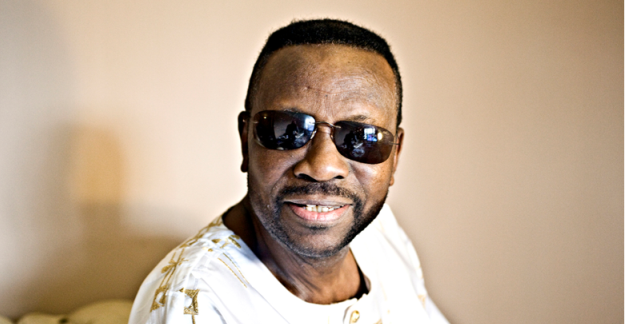
As we drove towards Abuja airport, I asked the driver, who was busy dodging mounds of earth in the middle of the road: “But why do they pile up the soil, when they are not ready to use it?”
“Ah, Oga,” said the driver, “When road na get this treatment, you go know that election dey come. Dem dey tell us say: ‘Make you vote for us o! We done start de road, so vote for us to finish am!’ Every election time de same.”
The driver knew the score all right. Politics is about money. It is this knowledge that drives people to commit murder in Kenya, the Ivory Coast or Zimbabwe – to mention just a few countries – to enable their ethnic kinsmen to achieve power.
At the time I was in Nigeria, a huge rift had opened between the northern and southern factions of Nigeria’s ruling People’s Democratic Party (PDP) over the election due to be held in May 2011. Would it be the southern faction, led by President Goodluck Jonathan, or Atiku Abubakar’s northern faction that would lead the PDP to victory? Prophets of doom began to liken Nigeria to Rwanda before the genocide in 1994.
As it happened, incumbent President Jonathan won the election. But unless he’s politically blind, he ought to have been greatly discomfited by the solid rejection infl icted on him by Northern Nigeria.
The situation that Jonathan faced has been replicated in neighbouring Ghana, as the ruling party there, the National Democratic Congress (NDC), has undergone a destructive leadership struggle. This started when Nana Konadu Agyemang Rawlings, wife of ex-President Jerry John Rawlings, decided to challenge the incumbent President John Atta Mills, who’s been in office since 2008, to be the NDC’s fl ag-bearer in next year’s elections.
After ruling Ghana as a military leader from 1981 to 1992, Rawlings transformed himself into a civilian president for eight years before handing the leadership to Mills, who had served as his vice-president.
But in 2000, the NDC under Mills was defeated by John Agyekum’s Kufuor’s National Patriotic Party (NPP), regaining power in 2008 only by the very narrowest of margins.
This year, the Rawlings clan launched a bitter campaign in an attempt to recapture the NDC leadership for itself. President Mills, of course, did not take this lying down, and the unsavoury bickering between the two camps was pathetic to behold – and sometimes droll. Insults were hurled from all sides, like Nigerian millionaires throwing money at beautiful dancers during a party.
The strength of feeling that rises to the surface of African society at election time – even at the primary level, where candidates are merely adopted without any assurance that they will be actually elected – suggests that the current processes for choosing our government, originating from the late colonial period, are totally inadequate, if not suicidal.
Our elections are almost always rigged, and cannot be taken to be a genuine test of the popular will. Yet, in Africa, the stakes are so much higher, because of the enormous difference that political power makes to the economic welfare standards of those who ‘win’ or ‘lose’ elections.
It is time for Africa and its friends to acknowledge that national election commissions can no longer be entrusted with the life-or-death responsibility of deciding who has won or lost an election. The existing election machinery is entirely dependent on the degree of credibility it is accorded by the electorate. Where the electorate suspects that the electoral commissions are not completely insulated from local political pressures, trouble lurks just around the corner.
The UN has a great deal of experience of supervising plebiscites, referendums and post-conflict elections in extremely volatile situations: for example, in Ghana-Togo (1956), Nigeria-Cameroon (1961), Namibia (1989), Haiti (1990), Angola (1992), Cambodia (1993) and Mozambique (1994). The UN was also partially involved in Eritrea (1993), South Africa (1994) and Malawi (1994). In each case, the election was a success.
The African Union (AU) should now, in collaboration with the UN, create permanent international electoral commissions, one for each region of Africa, which will use the mechanisms perfected by the UN to reach free and fair results, acceptable to all parties, in future African elections. For once an election result is seen to have been produced by an incorruptible process, ethno-political sentiments, no matter how bellicose, cannot be invoked against it.
Already, many international organisations have funds with which they pay observers to witness all African elections. This money could be pooled and given to the AU international election commissions.
Additional funds could be requested from the IMF and the World Bank, both of which have been emphasising the importance of ‘good governance’ in relation to economic development.
Such a system might save the world a great deal of future expenditure on the care of refugees and persons internally displaced by the violence that occurs during or after elections in Africa. And African governments will be saved the huge amounts – of both money and judicial time – currently expended on disputed election results.
Surely, national pride is not as important as saving the lives of potential victims of election violence?





